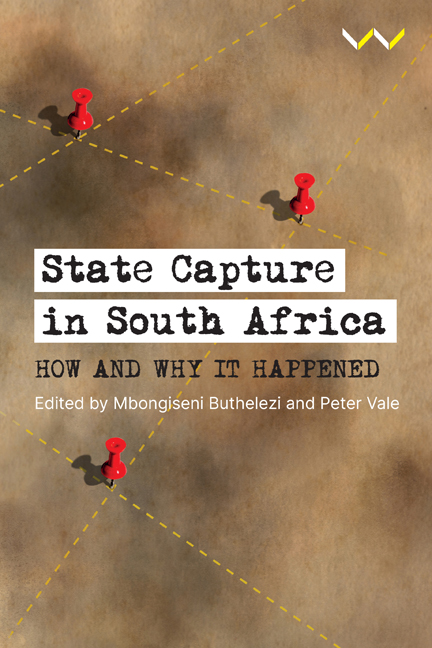Chapter 11 - Can Democracy Bind the State? Comparative Thoughts from Brazil, India and South Africa
Published online by Cambridge University Press: 28 February 2024
Summary
The chapters in this book develop different approaches to understanding what is widely described as the phenomenon of state capture in Jacob Zuma's presidency. In ‘Betrayal of the Promise’, the authors argue that state capture goes well beyond corruption in two respects (PARI 2017). First, it is systemic, involving a wholesale and concerted effort by elites to repurpose state institutions to generate rents and subsidise patronage networks. Second, it is a political project that comes not only with its own ideology (populist radical economic transformation) but also with efforts to harness the juridical and security apparatuses of the state to its cause. As the authors say, ‘it is akin to a silent coup’ (PARI 2017, 4).
In its scale, audacity and brazenness, state capture in South Africa may have been unique. But the broader phenomenon of elites seizing or effectively securing control of the state and subverting democracy is not. Indeed, the rise of right-wing populism across the world has been driven in large part by popular anger at the perception that the state and the economy it is meant to govern have been captured by elites. Adam Przeworski, pointing to the ways in which neoliberalism has crippled the capacity of states to regulate economies and ensure a modicum of economic justice, pithily captures the logic of popular anger when he notes that the people have learned ‘that they can vote, but not chose’ (1992, 56). Increasing pessimism about the state's capacity to serve the popular will finds support in two convergent, albeit theoretically and politically radically different, academic literatures. The first, following Przeworksi and other neo-Marxist theorists, argues that neoliberal globalisation necessarily undermines national economic sovereignty and democratic self-determination by ceding real decision-making powers to multilateral organisations, global capital and elite governance networks. The second and more traditional economistic vein of state pessimism treats the state as any other utility-maximising agent and points to its inevitable slide towards rent-seeking (Krueger 1974). This literature provided the intellectual ammunition for neoliberal prescriptions for rolling back the state in the 1980s and 1990s.
- Type
- Chapter
- Information
- State Capture in South AfricaHow and Why It Happened, pp. 234 - 256Publisher: Wits University PressPrint publication year: 2023

